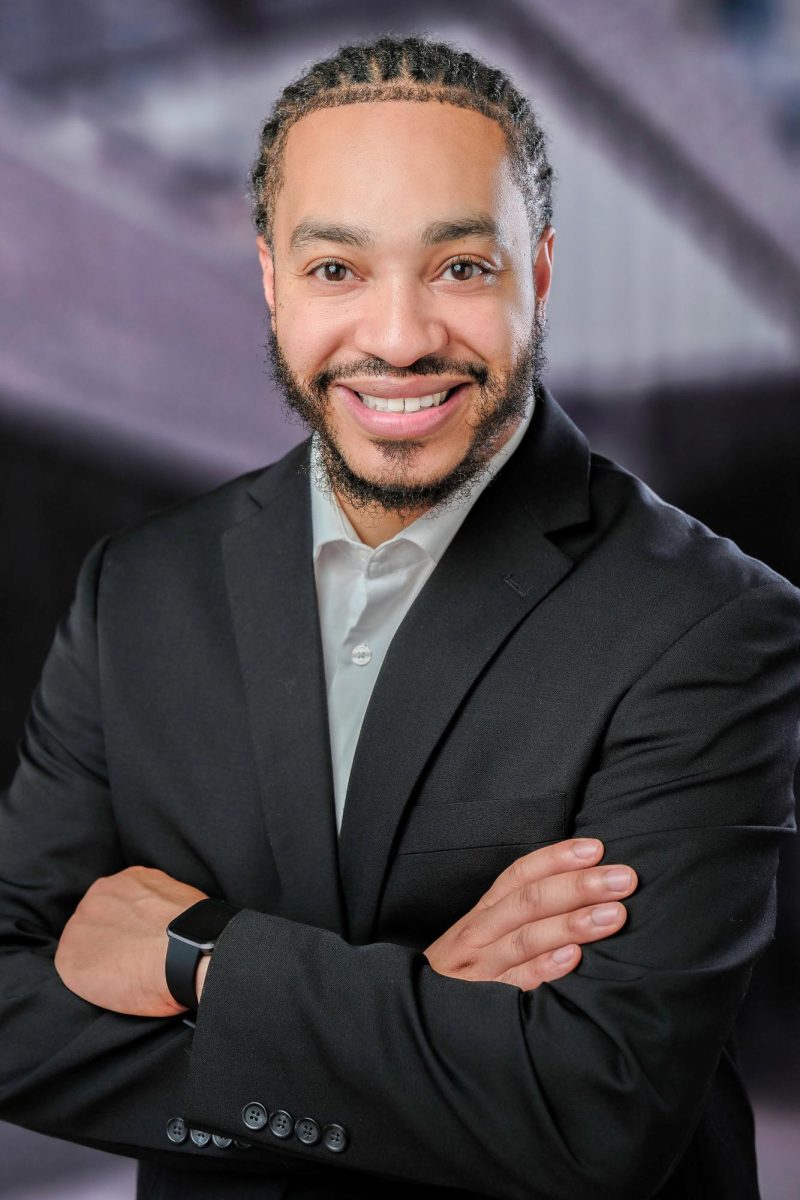De’Shawn Washington, UMass Boston alum, was honored as the 2024 Massachusetts teacher of the year by the Massachusetts Department of Elementary and Secondary Education. The award aims to recognize an excellent teacher in the Commonwealth who exemplifies leadership, creates a strong community in their classroom and gives students an opportunity to amplify their voice.
As the Massachusetts teacher of the year, Washington will be ambassador of educators for the state. Similarly, he will have the opportunity to travel to Washington, D.C. in April to be recognized alongside teachers of other states and potentially meet the president.
Starting at the beginning, Washington obtained his bachelor’s degree in accounting and finance from UMass Boston in 2013. During this time, he was introduced to teaching through JumpStart, a program that works to help children to read using phonemic and rhythmic awareness. He worked directly with two children every week, enjoying the role as an aid in the children’s education.
Although he continued his career as an accountant for a few years after graduation, he recognized that accounting was not his passion—his heart was in education.
He returned to UMass Boston and pursued a Master of Education degree focused in elementary education, graduating in 2018 and entering the Boston Public School system. In tandem, he continued his own education, pursuing a second Masters of Education degree in moderate disabilities which he finished in 2022.
Washington was a strong candidate for the teacher of the year award because he believes that making a space for students to speak leverages teaching and builds a strong classroom community. Teaching his fourth grade classroom at Maria Hastings Elementary School in Lexington, he utilizes approaches such as restorative circles to welcome students’ voices.
With the countless conflicts that can arrise between students at school, restorative circles give them a space to talk about these issues. What makes this approach special is that it requires students to actively listen and share the situation from their point of view in order to come to an agreement. To ensure every person involved has a space to talk and be listened to, the speaker holds a talking piece—any small object—as they speak.
Washington highlights that using this method teaches children the importance of understanding the other person’s perspective and brings healing to situations.
He believes that instead of “villainizing a person for their wrongdoing, we repair and restore them.” This means that while children are held accountable for their actions, they are still welome and comfortable in the classroom.
“You’re more likely to build up upstanding citizens in the world,” said Washington.
However, the approaches to amplify student voices weren’t always clear to him; this led to a struggle with classroom management in his first years as a teacher. As a result, the assistant principal of the school he worked in at the time, Dwayne Nuñez, joined him and introduced restorative circles—among other routines that gave students an opportunity to speak.
The fact that Washington persistently incorporated Nuñez’s approaches throughout his seven years as a teacher shows his dedication to nurturing students and building relationships with them.
Similarly, he understood the fundamental principle that to be a successful educator he must listen first. He noted that educators entering the profession often prioritize speaking rather than listening—making the mistake of not creating a space for students to speak.
Listening allows him to learn who his students are: their background and needs. This allows a teacher to build rapport with their students and understand how to shape a curriculum so it is relevant to them.
Washington emphasizes that education is a fundamental right. When taught in a format that helps students gain proficiency in all subject areas, especially literacy and math, education is an asset that enables youth to be not only competitive in the job market, but also “civic minded individuals who are able to be agents for political and social change and further the work towards justice.”
Currently, Washington is strengthening his leadership abilities as a doctoral student in Vanderbilt UniversityPhD program in Educational Leadership and Policy .
He mentioned that one of the most interesting concepts he has explored in his program is analyzing leadership from a theoretical and practical standpoint, realizing that a leader is not necessarily a person with a particular title but the person who responds to changes in their environment and is proactive.
“It really comes down to our ability to be proactive: understanding our structure and our environment, then being able to utilize what we know to help an organization or school improve and sustain their improvement.”
An interesting book he discovered in his analysis of leadership is “Power for All: How It Really Works and Why It’s Everyone’s Business” by Julie Battilana and Tiziana Casciaro, which he recommends to college students.
Washington also remains involved with UMass Boston, running workshops to help pre-service teachers pass the Massachusetts Tests for Education Licensure at the university.





















































